Health
Gombe State Suspends April Sanitation Exercise Ahead of Local Government Elections
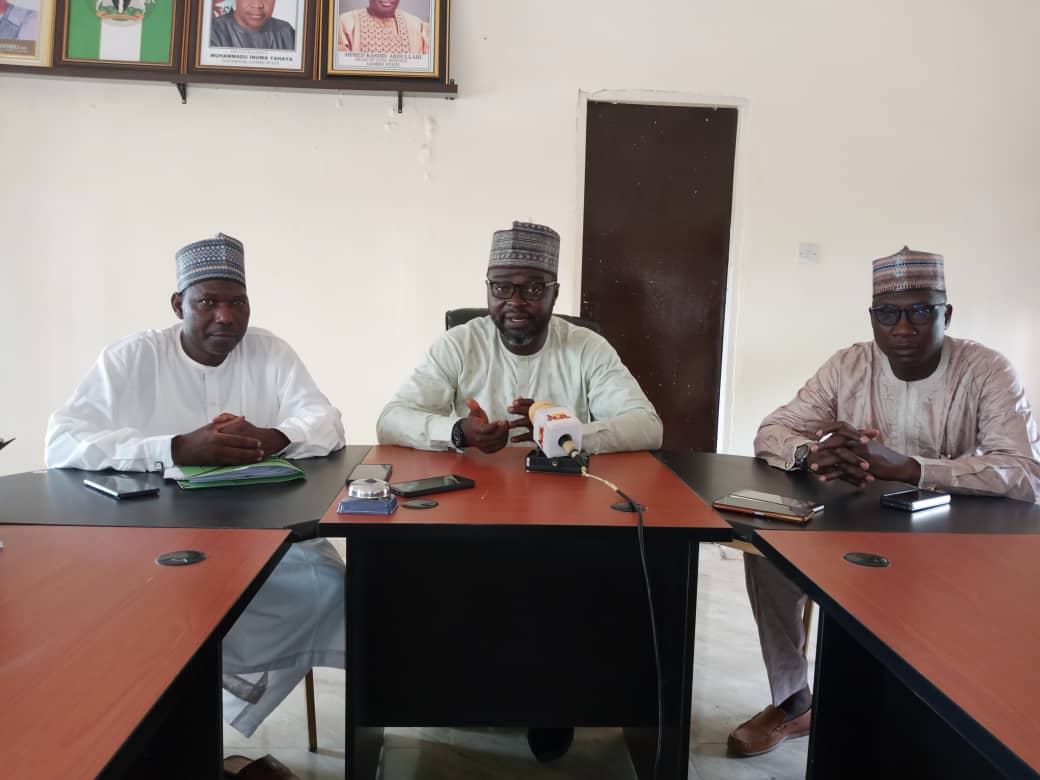
By Abdul’aziz Ibrahim Hassan
Gombe State Government has opted to suspend its April sanitation exercise, citing the upcoming local government council elections as the primary reason. Mohammed Saidu Fawu, the Commissioner of the Ministry of Water, Environment & Forest Resources, made this announcement during a press conference at the ministry’s conference hall.
Fawu emphasized that the decision to suspend the sanitation exercise, which was slated for the last Saturday of April and subsequent months, aims to ensure an uninterrupted electoral process. He highlighted the importance of fostering a conducive environment for voters to engage fully in the electoral process.
Encouraging eligible voters to seize the opportunity and participate actively in the elections, Fawu reiterated the significance of maintaining a clean environment beyond the monthly exercise. He cautioned against indiscriminate waste disposal and urged residents to utilize government-designated waste disposal sites, warning of legal repercussions for violators.
Furthermore, Dr. Auwalu Baba Jada, the Executive Secretary of the Gombe State Environmental Sanitation and Protection Agency (GOSEPA), disclosed the establishment of a mobile court by the state’s Chief Judge to enforce penalties for environmental sanitation and hygiene law violations, including neglecting the monthly sanitation exercise.
Health
DFHAI Sensitized Gombe Youths on Drug Abuse, Urges Collective Action
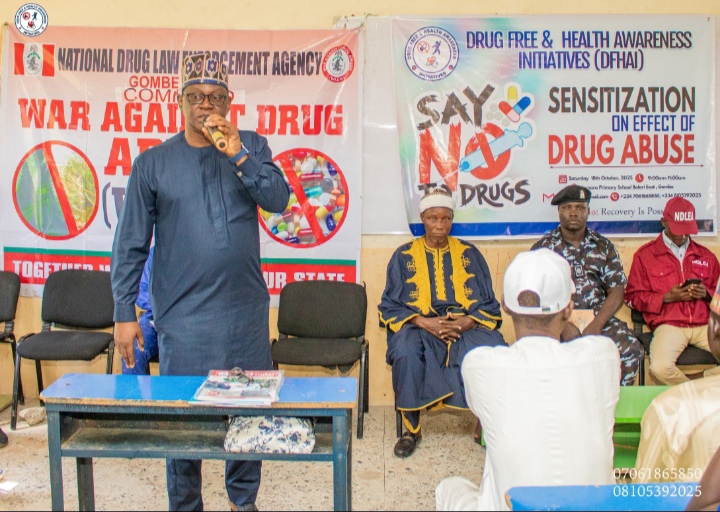
By Editor Daily Fact
A Non Governmental Organization Drug-Free and Health Awareness Initiative (DFHAI) has organized a sensitization programme targeting youths in Gombe State to raise awareness about the rising menace of drug abuse among young people.
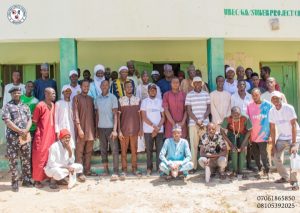
The event brought together key stakeholders including religious scholars, traditional rulers, law enforcement agencies, and health professionals, all united in their call for urgent action against drug abuse.

In his address, the Grand Patron of the organisation and Chief Medical Director of the Specialist Hospital Gombe, Dr. Sambo Dawa, highlighted the devastating medical, psychological, and social consequences of drug abuse.
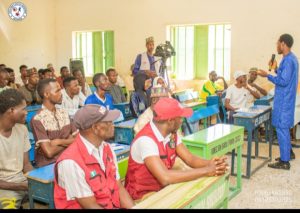
He linked the trend to rising crime rates and mental health issues in the state
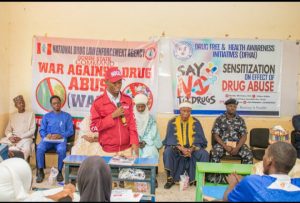
Dr. Sambo Dawa, used the furum to commend Governor Muhammadu Inuwa Yahaya’s administration for its continued support to health-focused initiatives in the state.

Also Speaking the President DFHAI , Dr. Muhammad Haruna, explained that the initiative was established to promote a drug-free society through education and consistent public sensitization.
He emphasized the importance of community participation and urged all stakeholders to sustain the momentum of awareness campaigns.
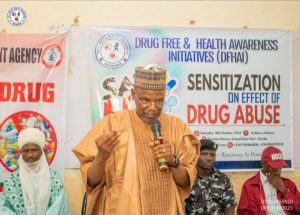
Dr. Haruna also appreciated the Accountant General of Gombe State, Dr. Aminu Umar Yuguda, for sponsoring the event and for his dedication to youth empowerment and social development.
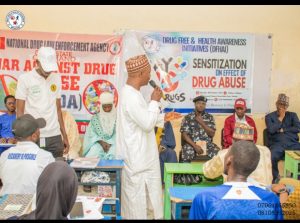
Prominent speakers at the event included Islamic clerics Sheikh Abubakar Na’ibi and Sheikh Naziru Idris, the District Head of Bolari, Alhaji Auwalu Mai Katifa, and representatives from the Divisional Police Office Low-Cost and the National Drug Law Enforcement Agency (NDLEA).
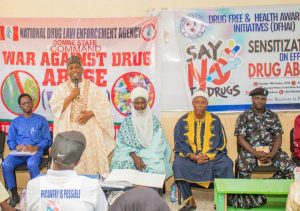
They all echoed a common warning that the rising trend of drug abuse poses a serious threat to youth development and societal stability.
Health
Malaria Consortium, Gombe SMEP Partner Media Ahead of Azithromycin Mass Drug Campaign
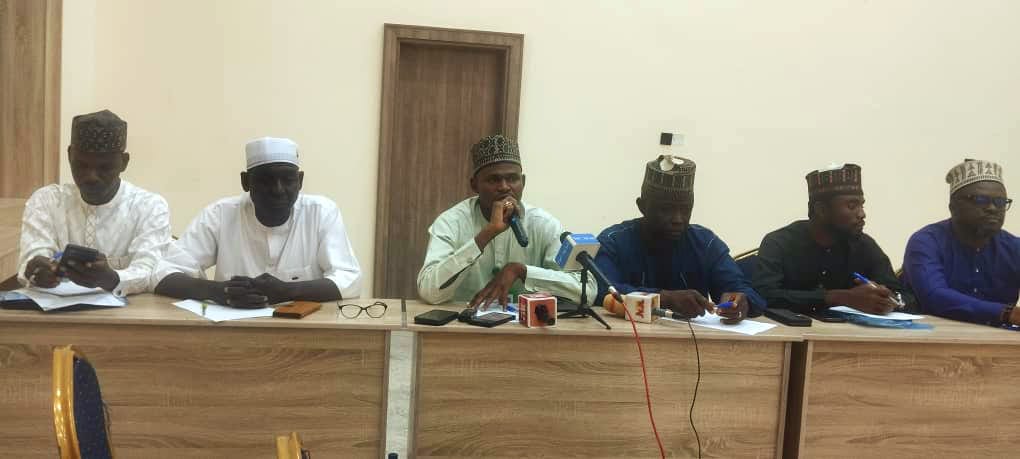
By Health Reporter
In a concerted effort to enhance public health communication and mobilization, the Malaria Consortium, in collaboration with the Gombe State Malaria Elimination Programme (SMEP), has held a high-level media parley with journalists and key stakeholders ahead of the upcoming Azithromycin Mass Drug Administration (MDA) campaign in the state.
The engagement, which coincided with the State Training of Trainers (SToT), brought together representatives from SMEP, the National Trachoma and Other Neglected Tropical Diseases Control (NTD) programme, state team leads, and media professionals to strengthen coordination and information sharing.
Speaking at the event, the State Project Manager of the SARMAAN II Project, Malam Abubakar Isa, highlighted the critical role of the media in promoting accurate health information and fostering public participation in health campaigns.
“The media plays an indispensable role in countering misinformation, educating communities, and promoting participation in health interventions. Through this collaboration, we can ensure people understand the importance of the Azithromycin campaign and take part actively,” Isa said.
He explained that the Azithromycin MDA is designed to reduce child mortality and control diseases that are preventable through antibiotic use.
According to him, about one million children across Gombe State are expected to receive free doses of Azithromycin during the exercise.
Also speaking, Dr. Obiora Anidebe, Project Technical Specialist, emphasized that the initiative is a partnership involving the Gombe State Ministry of Health, the State Primary Health Care Development Agency (SPHCDA), the Bill & Melinda Gates Foundation, SCIDaR, and Malaria Consortium.
He clarified that the drug is preventive, not curative, urging community members to participate fully while leveraging existing local health structures for effective coverage.
“Azithromycin is not meant for treatment but for prevention. Community support and participation are key to the success of this campaign,” Dr. Anidebe added.
In his remarks, the Director of Public Health, Dr. David Karatu, commended Malaria Consortium and its partners for their consistent efforts in strengthening the Gombe State health system and improving health outcomes.
“This collaboration demonstrates a strong commitment to the well-being of our people. We appreciate Malaria Consortium and its partners for their continued support to the state,” Dr. Karatu stated.
The Azithromycin MDA campaign, scheduled to commence soon, is part of ongoing efforts to protect children under five from preventable diseases and improve overall public health in Gombe State.

By Our Health Correspondent
In a concerted effort to enhance public health communication and mobilization, the Malaria Consortium, in collaboration with the Gombe State Malaria Elimination Programme (SMEP), has held a high-level media parley with journalists and key stakeholders ahead of the upcoming Azithromycin Mass Drug Administration (MDA) campaign in the state.
The engagement, which coincided with the State Training of Trainers (SToT), brought together representatives from SMEP, the National Trachoma and Other Neglected Tropical Diseases Control (NTD) programme, state team leads, and media professionals to strengthen coordination and information sharing.
Speaking at the event, the State Project Manager of the SARMAAN II Project, Malam Abubakar Isa, highlighted the critical role of the media in promoting accurate health information and fostering public participation in health campaigns.
“The media plays an indispensable role in countering misinformation, educating communities, and promoting participation in health interventions. Through this collaboration, we can ensure people understand the importance of the Azithromycin campaign and take part actively,” Isa said.
He explained that the Azithromycin MDA is designed to reduce child mortality and control diseases that are preventable through antibiotic use.
According to him, about one million children across Gombe State are expected to receive free doses of Azithromycin during the exercise.
Also speaking, Dr. Obiora Anidebe, Project Technical Specialist, emphasized that the initiative is a partnership involving the Gombe State Ministry of Health, the State Primary Health Care Development Agency (SPHCDA), the Bill & Melinda Gates Foundation, SCIDaR, and Malaria Consortium.
He clarified that the drug is preventive, not curative, urging community members to participate fully while leveraging existing local health structures for effective coverage.
“Azithromycin is not meant for treatment but for prevention. Community support and participation are key to the success of this campaign,” Dr. Anidebe added.
In his remarks, the Director of Public Health, Dr. David Karatu, commended Malaria Consortium and its partners for their consistent efforts in strengthening the Gombe State health system and improving health outcomes.
“This collaboration demonstrates a strong commitment to the well-being of our people. We appreciate Malaria Consortium and its partners for their continued support to the state,” Dr. Karatu stated.
The Azithromycin MDA campaign, scheduled to commence soon, is part of ongoing efforts to protect children under five from preventable diseases and improve overall public health in Gombe State.
-

 Leadership1 year ago
Leadership1 year agoBreaking: African Union Appoints Pantami as Co-Chair of the 4th Industrial Revolution Policy Council
-

 Appointment1 year ago
Appointment1 year agoGombe State Indigene, Appointed New Vice Chancellor (ATBU)
-

 Politics2 years ago
Politics2 years agoFormer Gombe State APC Promoters Forum Chairman Attacked Following Political Commentary
-

 Death8 months ago
Death8 months agoProminent Nigerian Islamic Scholar, Sheikh Sa’idu Hassan Jingir, Passes Away
-
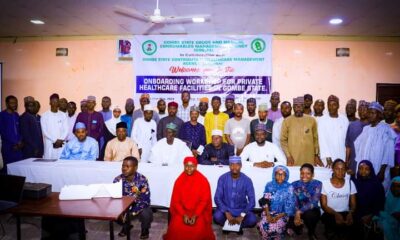
 Health1 year ago
Health1 year agoGombe State Organizes Onboarding Workshop for Private Healthcare Facilities
-
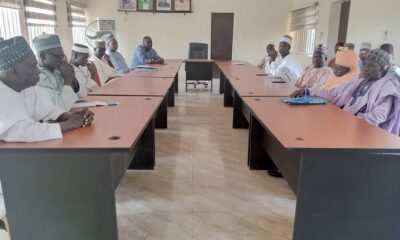
 Water2 years ago
Water2 years agoGombe Government Mobilizes Stakeholders to Combat Illegal Water Connections
-

 Politics1 year ago
Politics1 year agoGombe State Inaugurates Human Capital Development Council
-

 Politics2 years ago
Politics2 years agoGombe State Launches Presidential Palliative Program (PPP) to Aid Small Businesses
